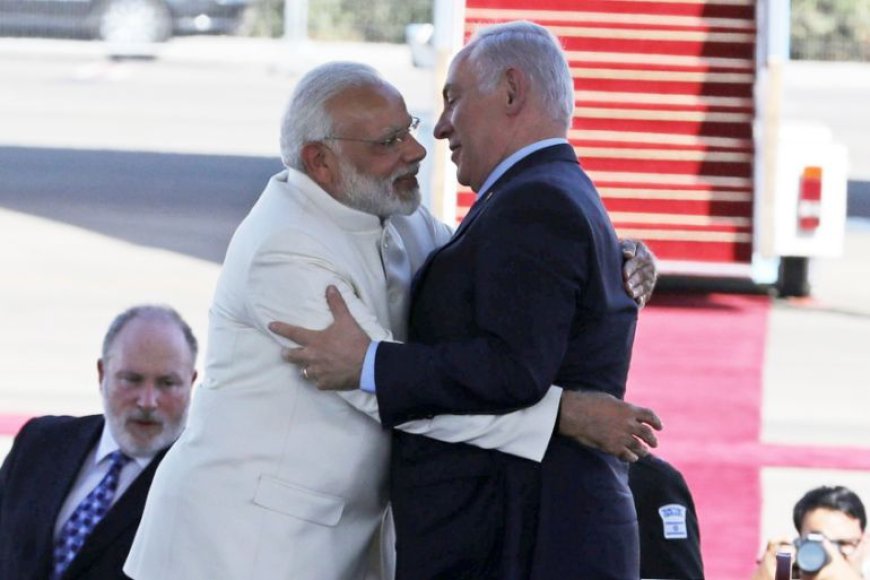India's Political Landscape: Catalyst for Misinformation in Israel-Hamas Conflict
Explore the dynamic shift in India's political landscape and public sentiment surrounding the Israel-Hamas conflict. Investigate the influence of social media in disseminating information, examining how pro-Israel content gains traction amid changing political alliances. Delve into the historical context of India-Israel relations and the impact of Prime Minister Modi's policies. Gain insights into the role of Hindu nationalist ideologies and the implications on India's foreign policy. This article unravels the complexities of the geopolitical landscape in light of the recent conflict.

In the wake of the recent Israel-Hamas conflict, India's role in shaping the narrative on social media has come under scrutiny. Social media platforms were flooded with both support for Israel and misinformation, with a significant portion originating from Indian accounts.
Geopolitical Shift:
The article begins by highlighting the geopolitical shift in India's stance, examining how the country, historically supportive of Palestine, has moved towards a more empathetic position with Israel. Experts attribute this change to various factors, including border tensions with China and conflicts in the Kashmir region.
Modi's Leadership and BJP's Approach:
Prime Minister Narendra Modi's leadership since 2014 has marked a significant turning point in India's foreign policy, particularly with regard to Israel. The Bharatiya Janata Party (BJP) has sought warmer relations with Israel, driven in part by shared concerns about counterterrorism.
Evolving Relations:
Tracing the historical trajectory of India-Israel relations, the article explores the transformation from India's support for Palestine since 1947 to the present-day cooperation and shared interests between India and Israel. The Mumbai attacks in 2008 and shared interests in trade and innovation have played pivotal roles in bringing the two nations closer.
Social Media Dynamics:
A considerable portion of the article investigates the impact of social media on shaping public opinion. The Narrative Research Lab in New Delhi conducted an analysis of trending hashtags, revealing a significant pro-Israel sentiment on platforms like X. The rise of Hindutva ideologies and a perceived link between anti-Muslim sentiment and pro-Israel fervor in India are explored.
Modi's Response:
The article delves into Prime Minister Modi's response to the conflict, emphasizing his strong declarations in support of Israel. The absence of explicit mention of Palestinian lives or concerns in early statements sparks discussions about India's balanced approach and the potential influence of right-wing constituencies.
Expert Perspectives:
Insights from experts such as Apoorvanand and Nicolas Blarel provide depth to the analysis. The ideological commonalities between Hindu nationalists and Zionists, including a shared stance on strong leadership and Islamophobia, are discussed.
Social Media Analysis:
The "We Indians" hashtag, often used to stir nationalist pride, becomes a focal point. The Narrative Research Lab's findings indicate a notable pro-Israel sentiment on social media, with a ratio of five-to-one in favor of Israel.







